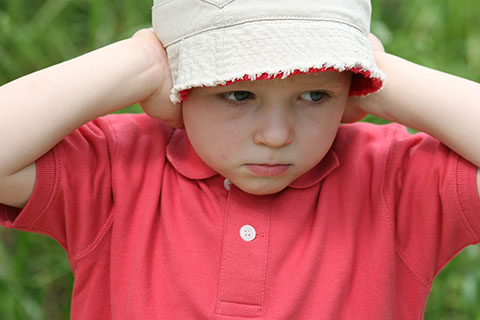Previous research has suggested that children who are exposed to a stressful environment early in life are at a higher risk of adverse long-term outcomes, including mental disorders1 and cognitive impairment.2 Now, a team of researchers in the UK have monitored autonomic reactions in 82 infants aged 12 months old in response to noise in the home environment, to better understand the mechanisms underlying this risk.
The infants were monitored over 1 day using devices that measured heart rate and rest/activity cycles to determine the degree of autonomic arousal, alongside microphones that recorded environmental noise. Then, the infants underwent a battery of laboratory tests to assess attention and emotional response to various stimuli. The researchers found that infants exposed to higher and more rapidly fluctuating environmental noise in the home, showed more unstable autonomic arousal patterns, compared to those exposed to quieter home noise environments. These affected infants also showed labile and short-lived autonomic changes in response to novel attention-eliciting stimuli, reduced sustained visual attention and increased arousal lability in response to an emotional stressor.
The researchers concluded that children exposed to more noisy environments showed reduced autonomic responsiveness to novel stimuli and more fast-changing profiles of autonomic arousal. For the first time, they examined how fluctuations in external environmental noise affect the developing Autonomic Nervous System. The researchers believe that these findings help explain how stressful environments might adversely affect long-term affective and cognitive outcomes.
Referring to:
Wass, S.V., Smith, C.g., Daubney, K.R., Suata, Z.M., Clackson, K., Begum, A. & Mirza, F.U. (2019), Influences of environmental stressors on autonomic function in 12-month-old infants: understanding early common pathways to atypical emotion regulation and cognitive performance. J. Child Psychol. Psychiatr. doi: 10.111/jcpp.13084.
1Businelle, M.S. et al. (2013), Do stressful events account for the link between socioeconomic status and mental health? J. Pub. Health (Oxf). 36, 205–212. doi: 10.1093/pubmed/fdt060.
2Blair, C. (2010), Stress and the Development of Self-Regulation in Context. Child Dev. Perspect. 4, 181–188. doi: 10.1111/j.1750-8606.2010.00145.x.
